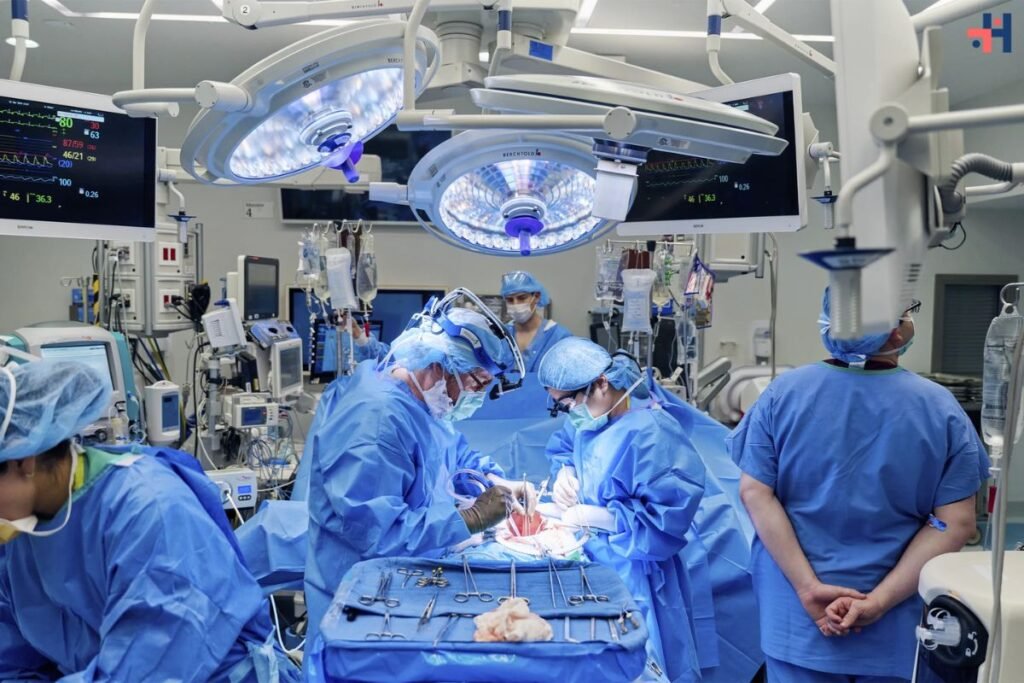(Source-WIRED)
NYU Langone Health has achieved a medical milestone by completing the first-ever pig kidney transplant surgery combining a mechanical heart pump with a gene-edited pig kidney. This groundbreaking procedure offers hope to patients like Lisa Pisano, a 54-year-old from New Jersey who faced heart failure and end-stage kidney disease.
A Patient’s Journey
Lisa Pisano, speaking from her bed in the intensive care unit, expressed her determination to seize the opportunity presented by the innovative surgery. Despite facing numerous medical challenges, including heart failure and kidney disease requiring dialysis, Pisano embraced the chance to improve her quality of life and spend more time with her family.
Addressing the Organ Shortage Crisis
The critical shortage of donor organs in the United States continues to be a pressing concern, with thousands of individuals awaiting life-saving transplants. Xenotransplants, involving the transplantation of animal organs into humans, offer a promising solution to this crisis. Gene editing techniques play a pivotal role in making these transplants feasible by minimizing the risk of organ rejection.
A Remarkable Surgical Success
Lisa Pisano received a mechanical heart pump followed by a gene-edited pig kidney transplant at NYU Langone Health. This pioneering surgery marks the first reported instance of combining a mechanical heart pump with a gene-edited pig kidney in a living recipient. Notably, the pig kidney was transplanted along with the thymus gland, a crucial component for immune system regulation.
Hope for a Better Future
While Lisa Pisano’s case represents a significant medical breakthrough, her journey toward recovery is ongoing. Doctors closely monitor her progress, anticipating potential complications such as organ rejection or infection. Despite the challenges ahead, Pisano expresses optimism about her improved health and the potential benefits of her experience for future patients.
Navigating Regulatory Approval
The surgery performed on Lisa Pisano was authorized under the FDA’s expanded-access or “compassionate use” policies, which provide critically ill patients with access to investigational treatments. This regulatory approval underscores the urgency and importance of exploring innovative medical interventions to address unmet medical needs.
Looking Ahead
Dr. Robert Montgomery, director of the NYU Langone Transplant Institute, emphasizes the significance of this surgical achievement in addressing the organ scarcity issue. He highlights the simplicity of the gene edits performed on the pig kidney transplant, making it a promising approach for scalable organ production.
Lisa Pisano’s story serves as a beacon of hope for patients facing similar medical challenges. Her courage and resilience inspire confidence in the potential of groundbreaking medical interventions to transform lives. As she continues her journey toward recovery, Pisano remains optimistic about the positive impact her experience may have on others in need of life-saving treatments.









